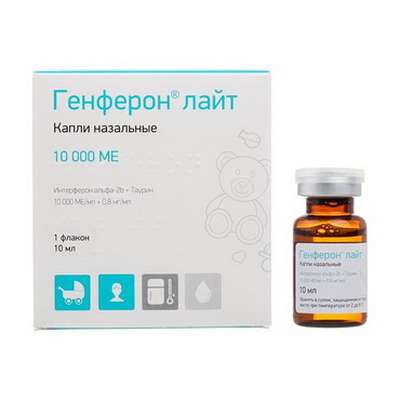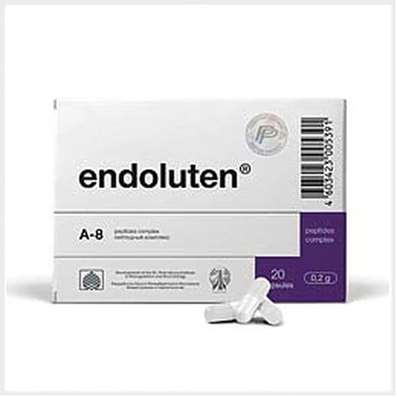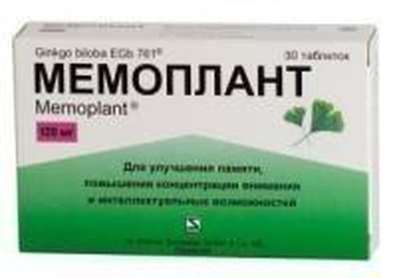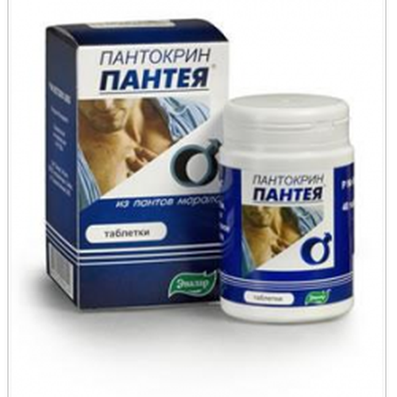Viral infections: what's in the arsenal?
26 Jul 2018
What medicines are most in demand at the end of winter - early spring? Of course, the whole arsenal of anti-cold means: there is a seasonal epidemic of flu and ARVI, so that - cough, runny nose, headache ... Alas, most of the drugs prescribed and bought "from cold" are struggling with these symptoms, and not with the very cause of the disease is viruses. And what do we have with the minority, i.e. with antiviral drugs?
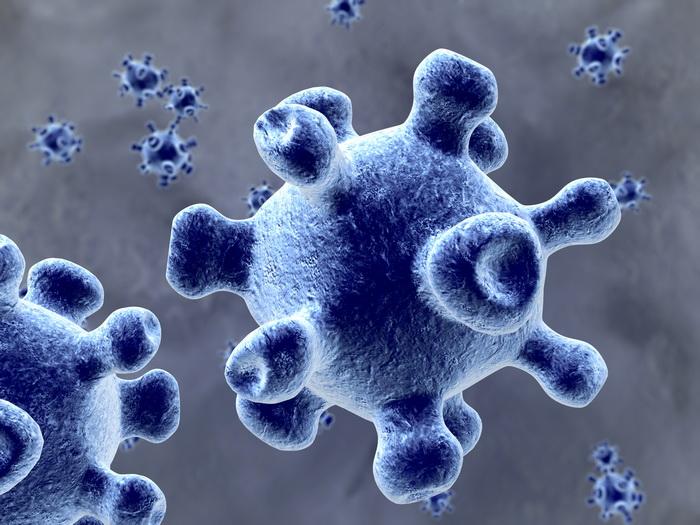
How to defeat the infection?
The first "line of defense" in the fight against viral infections is vaccination today.
If the infection is caused by bacteria, everything is simple enough: most microbes are susceptible to certain antibiotics, you just need to pick the right one and apply it correctly, without disturbance and with constant monitoring. With viruses, everything is much more complicated: they are insensitive to antibiotics, special antiviral substances often act only on certain types (and even individual strains) of the causative agents of the "cold", and those because of their high variability can quickly adapt to the active substance, to react to it. Therefore, in the prevention, and treatment of acute respiratory viral infections or influenza, there are no single universal tools - at least a few, but which will definitely fit anyone and cope with any virus.
The first "line of defense" in the fight against viral infections today is vaccination: experts predict the spread of viruses of certain strains, based on this forecast, a vaccine is created - and even if doctors have not guessed the strains, many vaccinated people are less likely to develop influenza, Immunity is already ready to face the virus. Unfortunately, not all are vaccinated, and vaccination itself comes only from the flu. From adenoviruses, PC viruses and many other pathogens of acute respiratory viral infection, which can give the majority of cases of "colds" during a seasonal epidemic, this vaccination does not help. And, of course, vaccination works only as a preventive, prophylactic measure and only for a healthy organism - if the first symptoms appear, it is too late and even harmful to plant. Both for prophylaxis and for treatment of acute respiratory viral infections, preparations of interferon - a specific protein (more precisely, a group of proteins), produced by our body in response to the penetration of viruses into it, are widely used. The action of interferons is indiscriminate, so they show activity against most viruses (and strains) that cause influenza and ARVI, but do not destroy the viruses themselves, but activate the immune system, increasing the resistance of cells and suppressing the multiplication of pathogens in them. In addition to preparations containing interferons themselves, inductors that enhance the synthesis of these proteins by the body are also used-such drugs are referred to as immunostimulants.
However, in severe forms of the disease, our immune system can not cope with the "invasion" of viruses even after taking stimulants, and in this case, drugs that directly suppress the development of the pathogen are needed - etiotropic antiviral agents.
All viruses are different ...
Antiviral drugs are not so few, but not all of them will act on the viruses that cause ARVI. For example, acyclovir, effective for fighting the causative agents of herpes, chicken pox, shingles, will be virtually useless against influenza viruses: it acts on DNA-containing viruses, and influenza causes RNA-containing. And even for drugs intended for the treatment of influenza, the effectiveness against very common pathogens ARVI, for example respiratory syncytial (PC) virus or adenoviruses, may be insufficient or not observed at all. Therefore, when selling such drugs, it is advisable to check with the buyer whether the diagnosis was "influenza" by a specialist or, as we often do, the patient with an easy cold decided that he "zippipoval", and is going to undergo treatment independently ...
And even against influenza viruses, the effectiveness of different drugs can be different - depending on whether it is a virus, A or B, sometimes even from a specific strain. Moreover, many antiviral drugs have quite pronounced side effects, so without an accurate definition of the pathogen and the appointment of a doctor, it is better not to take them: they can act less on a "cold" than on the patient's body!
Umifenovir acts on influenza A and B viruses, is used to treat rotavirus infections and is low-toxic, relatively safe (it is not prescribed only to pregnant women, children under 3 years of age and in cases of hypersensitivity to the drug).
It reduces the duration of an acute period of the disease and reduces symptoms of intoxication. It should not be an independent and unique means of "flu" (as well as other antiviral drugs) - complex treatment is necessary, in which this drug will be only one of the prescribed medicines.
Oseltamivir is intended for the treatment of influenza A and B, but it is ineffective for ARVI caused by other diseases, and even for the treatment of influenza B it is necessary to achieve a higher concentration than when fighting the influenza A virus - so this drug can be considered highly specialized, "influenza ". Specialists prescribe it only in severe cases confirmed by laboratory tests of influenza, as a preventive drug this drug is not prescribed at all, and in mild cases, possible harm may outweigh the benefit. The fact is that this remedy is considered toxic (it is especially noticeable when treating for a long time on the kidneys and nervous system) and can cause undesirable side effects from insomnia to coughing, headache and nausea - i.e. with improper application or individual intolerance itself can cause symptoms similar to influenza and ARVI! In this regard, mass purchases that began a few years ago on the recommendation of the WHO, are currently suspended by several countries, the application is limited and additional studies are conducted on the efficacy and safety of the drug. In addition, more strains resistant to oseltamivir have recently been detected.
Rimantadine is a part of various drugs and has been used for the prevention and treatment of influenza since the 1960s. A great clinical experience of its use has been accumulated, many studies have been carried out, but such a long application has led to the formation of a significant number of strains resistant to this substance. In addition, rimantadine is effective only against influenza A viruses - it does not affect other pathogens of influenza and SARS. Its effect (if the strain is sensitive to the drug) is quite effective, there is a noticeable relief of symptoms and a reduction in the total time of the disease, but for such successful treatment, precise diagnosis is necessary with isolation of the pathogen and its test for resistance to rimantadine, but independent use against "cold" can and have no effect on the course of the disease. Long-term experience with rimantadine has allowed us to identify numerous contraindications-not only pregnancy and children under 7 years old, but also many chronic liver, kidney and cardiovascular diseases: for elderly patients with hypertension, it is not recommended because of the danger of development hemorrhagic stroke.
SARS, influenza, even with a light current are fraught with sudden complications, affecting a variety of systems and organs, so do not try to "move on your feet" viral infection and even more so you can not self-medicate in severe cases.
Vitaglutam, or imidazolylethanamide pentanedioic acid, is recommended for the treatment of a wide variety of viral diseases: influenza A and B of any strains, adenovirus infections, parainfluenza, infections caused by the PC virus. In addition to antiviral action, it also has anti-inflammatory and immunomodulatory effects. However, as with many other drugs, radical and rapid cure after its administration is not expected - the period of fever is shortened, the symptoms of intoxication and catarrhal symptoms decrease, the overall duration of the disease may decrease and the probability of complications after the illness may decrease.
The merits of this drug include low toxicity - of the expressed side effects only occasionally, in cases of individual intolerance, allergic reactions are noted. But still it is not recommended for pregnant women, nursing mothers and children under the age of 18, and the dosage and duration of treatment, like other antiviral drugs, should be determined by the attending physician.
What else?
Of course, in this short review, it is simply impossible to cover the entire market of the funds offered to combat viral "colds" - hundreds of names of preparations of the most diverse groups. Someone prefers homeopathic remedies, some - vegetative immunomodulators, many choose complex anti-catarrhal drugs - their action is mostly symptomatic, but in light cases and it is enough to ease your well-being, and then the body copes with the viruses on its own ...
However, it should be remembered that the "usual" ARVI, and especially the flu, even with a light course are fraught with sudden complications, affecting a variety of systems and organs, so in any case, do not try to "move your leg" virus infection and even more so engage in self-medication in severe cases: if effective antiviral drugs are required, only a doctor should prescribe them after the diagnosis has been clarified and all contraindications taken into account!

 Cart
Cart

